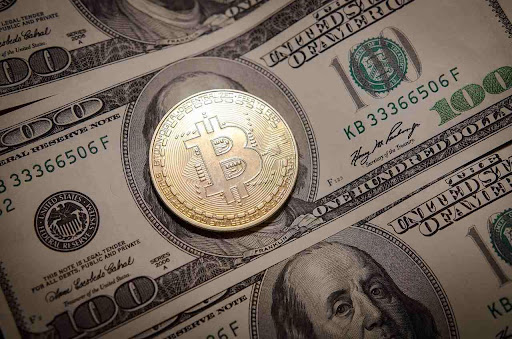Learn How Bitcoin’s Price Has Changed Over Time

[ad_1]
Join Our Telegram channel to stay up to date on breaking news coverage
Learn How Bitcoin’s Price Has Changed Over Time
How Has Bitcoin’s Worth Changed Over Time?The concept of cryptocurrencies – virtual assets – may have sounded strange two decades ago, but today’s reality is different. The invention and growth of cryptocurrencies has opened a world of vast opportunities, such as bitcoin trading on OANDA and worldwide, as well as an international financial system that circumvents traditional limits. But the success of Bitcoin and other cryptocurrencies depends on their worth, to a large extent. Bitcoin is perhaps the best illustration of how crypto prices change over time. This article explores how Bitcoin’s price has fluctuated since its launch, the factors affecting its worth, and how financial market traders have managed the price change.
Bitcoin for pizza: The early yearsBitcoin was invented by Satoshi Nakamoto, a previously unknown computer programmer who is now credited with leading the most significant financial revolution of the 21st century. The coin launched in 2009, but was relatively unknown, given its status as a virtual asset without physical value. At that time there was no mention of Bitcoin being valuable or exchanged for fiat, and only a few people would have foreseen today’s events. But something incredible happened on May 22, 2010, when Laszlo Hanyecz, a programmer, paid for two large pizzas with 10,000 BTC, worth $41 at that time ($0.041 per BTC). It was remarkable then because no one thought Bitcoins were valuable enough to exchange for pizzas. But today, 10,000 BTC is worth hundreds of millions of dollars. In hindsight, that single transaction is incredible, considering the staggering value that Bitcoin now has. It didn’t take long for Bitcoin’s value to increase, paving the way for other cryptocurrencies and the crypto market at large.
Bitcoin price 2009 – 2016Bitcoin cost $0 in 2009, but slowly increased in value over the years. The price jumped to $0.9 in July 2010, and stayed within a range until April 2011, when it started rising. Bitcoin gained 2,960% in three months, rising from $1 in April to $29.6 in June. But the crypto market (primarily Bitcoin) experienced its first crash by November, when Bitcoin hit $2.05, wiping out many late investors. The bear market lasted until mid-November 2011, before Bitcoin picked up again, eventually moving to $4.85 in May and then to $13 in August 2011. The bull market finally slowed to a range that lasted all of 2012. But 2013 began the year of an explosion, when many crypto projects launched. Within four months, from January to April, Bitcoin jumped 1731% from $13.28 to $230 before experiencing its second crash in July, bringing the price down to below $70. But the market picked up again, and Bitcoin gained until it reached $123 in October. By November, Bitcoin’s worth had crossed $1,000 for the first time, reaching $1,237.55 before crashing 44% to $687.02 within three days. The bear market continued into 2014, lasting the whole year and falling to $315 in January 2015.
Bitcoin price 2016 – 2022

Bitcoin’s growth was slow from 2015 to 2016 due to the growing number of crypto projects, rival blockchains and tokens, and low investors’ confidence. The price grew to $900 by December 2016 before crossing $1,000 in 2017. By May, Bitcoin crossed $2,000, and then rose smoothly to hit $19,000 in December 2017. By 2018, Bitcoin had established itself as the most prominent cryptocurrency by market volume and capitalization, and the market responded. The price ranged but eventually dipped to below $7,000 in December 2019. Although it closed the year below $10,000, Bitcoin showed promise of a resurgence, which came in an unlikely way: 2020 saw a global event that increased the demand for a financial system without geopolitical restrictions. Bitcoin led other cryptocurrencies in providing a solution, and the market responded again. By November 2020, Bitcoin crossed $19,000 again and hit $29,000 in December. 2021 brought Bitcoin’s best year yet, hitting $40,000 in January, before crashing to below $30,000 in July, and then reaching its all-time high price of $69,045.00 on November 10, 2021. By November 26, however, Bitcoin crashed again, falling to $46,000 in December, before starting 2022 above 47,000. Bitcoin has declined further this year, falling to $28,000 in May and then $23,000 in June. As the bear market continues, Bitcoin is trading at $19,000 in October 2022.
Factors impacting Bitcoin’s worthBitcoin, like other cryptocurrencies, has higher volatility than fiat currencies and can gain or crash by massive points within a short time. But Bitcoin is also subject to demand and supply, which are impacted by political and economic factors. For example, some investors consider Bitcoin better for hedging against inflation, and may purchase Bitcoin for that purpose. The best example is the increased demand for cryptocurrencies when the stock market is bearish. Demand for Bitcoin also increases when global events such as diseases that restrict activities, political and military tensions, and economic recession occur.
Final thoughtsBitcoin is the most valuable cryptocurrency and also the most traded by volume. Bitcoin’s worth is tracked by governments, economic experts, traders, and even scientists, showing its importance in today’s financial markets. Traders have access to Bitcoin instruments through brokers and can take advantage of the coin’s volatility to make profits. Bitcoin’s worth has been both dramatic and predictable in recent months, thanks to advanced analytical tools that are being used by brokers.
Join Our Telegram channel to stay up to date on breaking news coverage
[ad_2]
Source link

